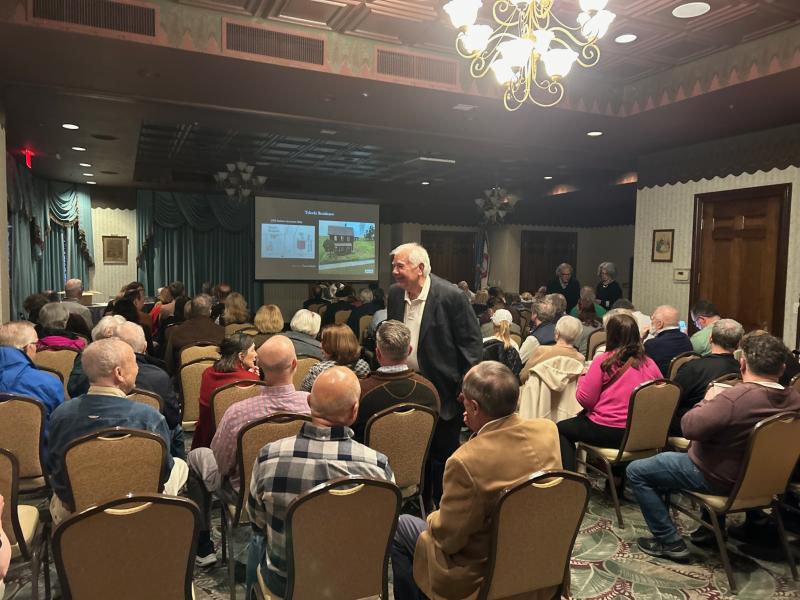Lecture recognizes Greek influence in Rehoboth Beach history
.jpg)
Local historian Paul Lovett presented his 11th installment in the Rehoboth Beach History Lecture series March 14 to a sold-out crowd of more than 100 people at the Boardwalk Plaza Hotel.
Speaking about Rehoboth’s Greek heritage, Lovett began with the story of Tom Pachides, grandfather of Tom Ibach and the first known person from Greece to open a business in the town. Along with Rudolf Dolle, Pachides founded Dolle’s Candyland, which will reach its 100th anniversary in Rehoboth Beach in 2028. Pachides, who had immigrated to the U.S. 20 years earlier, was the local guy and manager of the operation. At the same time, the two men also established the iconic Playland amusement park that many who lived in Rehoboth in the 1950s remember. In the early 1930s, it included a Ferris wheel.
Pachides hailed from Galatini, a town in northern Greece, and he started a trend by inviting his family members and friends to join him in Rehoboth Beach. Most of the Greek business owners who have lived, or currently live, in Rehoboth can link their history to Pachides, and virtually all were refugees from Turkish or civil wars in Greece. They usually arrived in the United States penniless and spoke no English, but they were proud to become American citizens. They were diligent, hardworking people striving to achieve the American dream.
Today, Greeks in Rehoboth Beach fall into two categories as either owners of iconic businesses who continue to work hard daily at their operations, or those whose careers took them beyond the seaside town, but remain invested in Rehoboth property, particularly along the Avenue. Current business owners include Tom Ibach at Dolle’s, Bill Svolis at Gus and Gus, Nikki and Kosta Tsoukalas at Robin Hood, and Louie Gouvas with sons Tim and Tony at Louie’s Pizza. Those who invested in real estate include John Papajohn and son Alex, who are working to gain approval for an $80 million revival of the Belhaven Hotel on the south corner of Rehoboth Avenue and the Boardwalk; and the Trahos family, who recently purchased the property previously occupied by Nicola Pizza.
Kathy McGuiness, who provided Greek cookies for the event, said, “The Greek families are happy to have been brought together for some other reason than a funeral!” The line that received the most laughs at the lecture was, “The local Greeks argue about who arrived in the United States with the least amount of money.” Lovett was given a citation from Delaware Senate upon the occasion of his lecture to commemorate the town’s rich Greek history.
Lovett is also the creator of the multi-year diorama project to replicate Rehoboth Avenue during its railroad era, which lasted 85 years. The miniature village is now on display in the atrium at Rehoboth Beach City Hall. For details, go to goldenageofrehoboth.com.
While the diorama can be viewed on weekdays during regular city hall hours, it is best experienced by making an appointment with Lovett. He organizes free, informal, small-group presentations of the display and invites anyone interested to schedule a time, bring their coffee, see the scenes up close and hear the stories.
The diorama now features more than 100 exact replicas of the buildings that existed along Rehoboth Avenue during the railroad era. All main buildings are lighted. Visitors can watch the train come up the Avenue, see the merry-go-round rotate, smell the power plant smoke, enjoy the seagulls’ cries and hear the bell toll from Scott’s Chapel. Contact Lovett by emailing paul@pdlovett.com or calling 302-893-9391 to schedule a time to see the display.













































